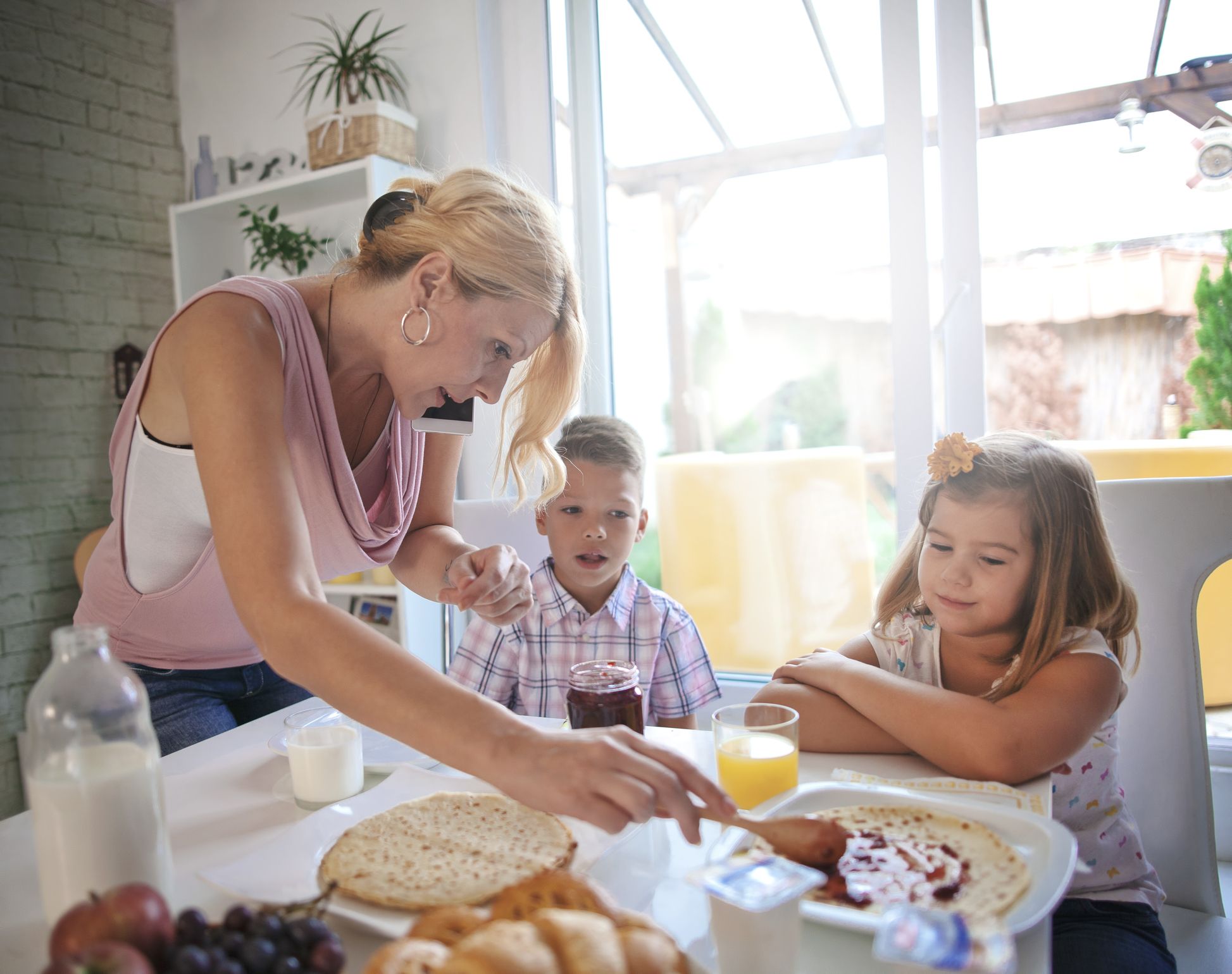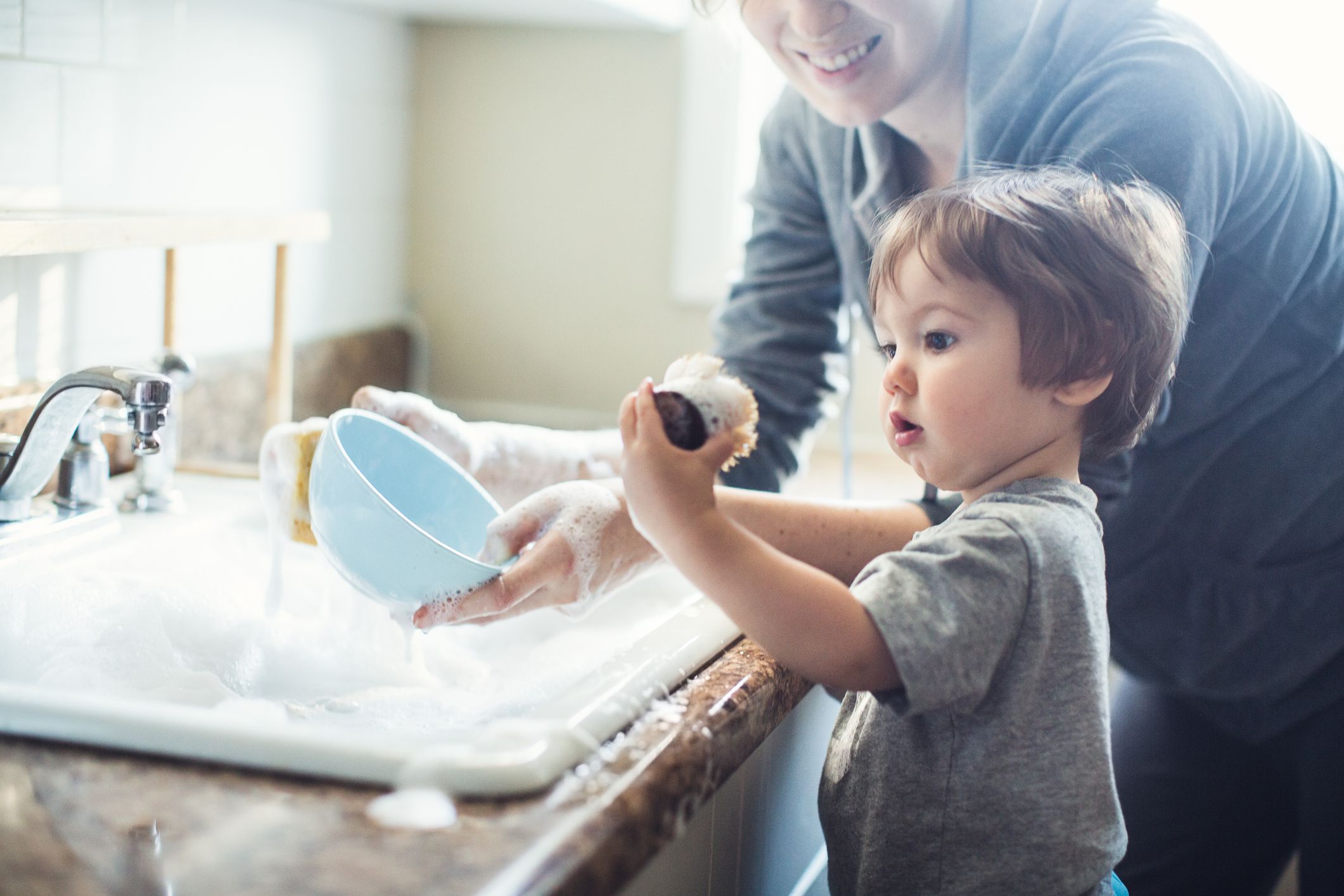Parenting is an elaborate and complex job that changes with each age as a child develops. Since our primary responsibility is to keep our children safe while providing a stable home, it’s understandable how involved—even overprotective—parents can become. However, the older a child gets, the less control we have as parents. Therefore, the need for children and teens to build strong self-reliance and emotional intelligence is critical. Does helicopter parenting encourage independence and resiliency?
Estimated reading time: 6.5 minutes
Heartmanity is proud to partner with outstanding companies that we wholeheartedly recommend
so this post may contain affiliate links. You can read our full disclosure here.
TABLE OF CONTENTS
Why Overprotective Parenting Handicaps Children
Characteristics of Helicopter Parents
Characteristic Behaviors of Parents that Can Stifle Healthy Development
3 Vital Parenting Ingredients that Cultivate Healthy Emotional Development
Values and Goals Serve as a Parenting Roadmap
Too Kind Parenting
Most parents have good intentions, even overprotective parents. No parent sits down and plots how they can shape their children into miserable or helpless human beings as adults.
So, how do we get off track even if unintentionally?
In the day-to-day demands of our family lives, parents are often caught up in the immediate requirements of making it through the day. They make sure the kids are out of bed and dressed, get breakfast on the table, drop them off at school, and then rush to work (followed by little league sports), make a mad dash to grocery shop, prepare dinner, and then on to the bedtime rituals. There is very little time or energy left over to ponder “visionary parenting.”
Perhaps if we truly understood the cost of underestimating our influence as a parent, we would do better. Maybe if parents were fully cognizant of the vast potential of key parental actions, we’d be a little more patient, respond in more meaningful ways to our child’s behavior, or seek to understand life from our child’s perspective instead of ricocheting off our mounting stress.
Why is intrusive or overprotective parenting so disempowering?Why Overprotective Parenting Handicaps Children
Let’s look at some research on what has been termed a “helicopter parent,” or more recently a “drone parent.”
A study summarized in Developmental Psychology followed a group of toddlers for eight years:
"… more controlling behaviour by mothers was linked both to their children having less control over their own emotions and less control over their impulses by the age of five.
What’s more, five-year-olds with poorer control over emotions were linked to worse social skills at the age of 10, while lower levels of control over emotions and behaviour were both linked to poorer academic performance, even after taking into account such behaviours at the age of five. They were also linked to more emotional problems and a poorer attitude to school, as reported by the children at age 10.”
To successfully unpack and understand how this study's results are possible, we must explore a few of the key ingredients that are denied children when parents assert themselves too much, too often. Let’s look at some common parental behaviors that deny children vital elements that encourage healthy self-esteem.
Characteristics of Helicopter Parents
There are many different characteristics of parents' behaviors that can stifle healthy development and are often associated with helicopter parenting. Here are some of the most common.
Talking for a child or over a child.
This parental behavior is typical. The parent answers for the child when they are asked a direct question. How can a child practice language or social interactions if parents talk for them?
Overprotecting a child.
Exploration is critical for a child’s development. A hovering parent can give a fearful message that the child isn’t capable or that the world is an unsafe place.
Doing for a child what a child can do for him or herself.
A child is continually learning skills, such as fine and gross motor skills, social skills, decision-making and problem-solving skills, emotional modulation, and self-calming.
Rescuing a child when frustrated or overwhelmed.
When a parent rescues a struggling child, a child is denied opportunities to gain coping mechanisms that increase their tolerance for struggle and disappointment. Also, the child needs to exercise perseverance for new activities or when a task is difficult.
Not allowing or shaming emotional expression.
How can a child learn to regulate their emotions without first feeling them? The ability to identify and manage our emotions builds over many years, but only with practice.
Making excuses for a child's emotions or behavior.
For example, “they’re just tired,” “they’re too hungry” or “they’re shy.” Whenever we allow a child to misbehave while making excuses for them, we are training them to act this same way in the future. If a poor effort is permitted and we step in to do what they can do for themselves, we are promoting passivity. When we are quick to fill the gap (i.e., you finish that science project for them), we teach dependency on others. After all, others will pick up the slack, right?
Applauding and praising children when they exert little effort.
When parents give too many accolades too quickly, children do not develop their inner cheerleader. And if we don't encourage our child to strive continually for their best but instead accept mediocre results, they might just come to believe that IS their best.
Now that you know some of the pitfalls of parenting, let's look at some more research that shows how a parent's influence helps to build a child's sense of well-being.
Returning to the study mentioned above, here are more of their findings:
“Caregiver behaviors are thought to contribute significantly to the development of self-regulation. Children rely on caregivers to regulate their state, arousal, and behavior during infancy and gradually develop self-sufficiency in managing their own actions and emotions into early childhood; it is the regulation provided by caregivers that presents children with increasingly complex social, emotional, and cognitive experiences that allow them to practice self-regulating.” (Sameroff, 2010)
 So how exactly do parents and caregivers assist children to gain self-regulation, resiliency, and self-reliance?
So how exactly do parents and caregivers assist children to gain self-regulation, resiliency, and self-reliance?
Below are three key ingredients necessary for healthy emotional development. Just like growing a prize tomato, a child can only thrive if caregivers give their children essential nutrients.
Three Vital Parenting Ingredients that Cultivate Healthy Emotional Development
For children to learn self-control, they need to learn appropriate responses to their feelings and choose from many potential behaviors.
This ability depends on three critical things:
- Being able to understand that feelings do not cause behavior. Feelings are energy moving through us; they are merely feelings but do not require us to react or act.
- The ability to identify what specific emotion or emotions they are feeling.
- Make effective choices guided by their minds.
The following responses to a child by a parent help to weave these skills throughout the developmental years.
- Provide an accurate mirror of the child's feelings.
Reflecting accurately helps children identify their feelings, learn the purpose of their emotions, and bridle them productively. - Set loving and firm limits for behavior while helping your child meet their underlying needs.
When parents set healthy limits for behavior, it gives their child the opportunity to deal with their frustration, learn to calm down, and spurs self-assessment. - Encourage self-assessment.
It’s vital to help children determine what outcome they want and how their actions influence the results. This discovery provides an opportunity for a child to sort through feelings, connect the dots from behavior to results, and act more responsibly in the future. This process also lets them know that they have the power to influence the quality of their experiences.
Ask open-ended questions: - “How are you feeling about what just happened?”
- “What were you making important in that situation?”
- “What did you learn from this experience?”
- “What did you make the other person’s response mean?”
- “What would you do differently next time?”
When I met with the teenager and asked similar questions as listed above, she quickly realized that her past words and actions resulted in the opposite outcome of her desires and dreams. Once she connected the dots of her behavior to results, she was able to take responsibility and pass her classes. However, now she was acting on her own behalf. When she aligned with what was important to her, her parents no longer needed to assert any control because she had personal power fueling her actions!
 Values and Goals Serve as a Parenting Roadmap
Values and Goals Serve as a Parenting Roadmap
Successful and conscious parenting requires us to know our values and goals, too. The daily demands insist that we stay connected and check in often with our highest principles.
Our vision of the value-based, character-building actions that create the results we want for our children serves as a roadmap. Our actions must support and match those values and goals. Just like the navigational instruments of a plane that guide the pilot, visionary parenting guides us by values and goals.
How do we stay on track as parents? You probably already know that pilots make dozens of course corrections during a flight to reach their final destination. And so must parents!
Seek to find the middle path where you don’t hover too closely (helicopter parenting) or take too much distance without enough connection and guidance. Find a balance between attentive parenting versus smothering, firmness versus controlling, and giving freedom with appropriate limits versus permissive parenting. Parenting is a moment-by-moment, daily assessment with dozens of course corrections.
My best advice: take care of yourself! Ground frequently in your values. Revel in the love you have for your child—no matter how old they are. Then, gently check in to see if your actions and parental responses are achieving your ultimate goals.
For parenting tips or if you’d like support as a parent and want to learn proven skills to be a more conscious and effective parent, email support@heartmanity.com or contact us about our parenting classes and coaching programs.









